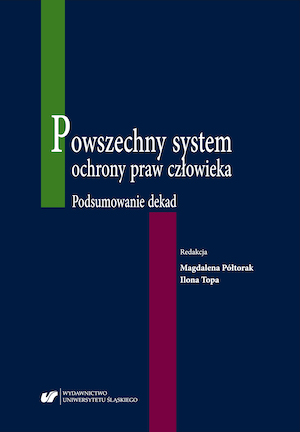Podstawy prawne i społeczne wolności zgromadzeń
The freedom of organizing of and participating in assemblies as the foundation of the democratic state of law
Author(s): Rafał B. Kirsch
Subject(s): Human Rights and Humanitarian Law
Published by: Wydawnictwo Uniwersytetu Śląskiego
Summary/Abstract: The article analyses the issue of the freedom of organizing and participating in assemblies as the basic attribute of the democratic state of law and as the symbol of the civil society. A freedom of assembly is one of basic foundations of every democratic society. It permits to indicate and, in the same time, to declare that historically, legally and actually the superior authority in the state belongs to the nation. Large gatherings constitute the important component of the history of Poland, as well as a mark of present times. All marches or demonstrations are the attribute of every political opposition and basic form of its activity. Assemblies constitute the sign of the societal opposition to the current political situation, but their primary role was an opposition to the power. Assemblies performed the integration function and consolidated mass in the fight for recovering the sovereignty. After the political transformation restoring the freedom of assembly became the natural order of things and reflected the creation of the democracy and pluralism in Poland. At present, role of assemblies has not lose her meaning and still constitutes the important component of expressing socio-political attitudes. In times, in which the considerable part of the social life is held in a virtual reality, it has seemed that assemblies might lose their meaning. It is not true, however. The media every week inform more and more on new gatherings, and their number is constantly increasing.
Book: Powszechny system ochrony praw człowieka. Podsumowanie dekad
- Page Range: 104-113
- Page Count: 10
- Publication Year: 2018
- Language: Polish
- Content File-PDF

